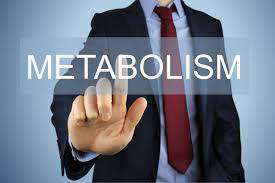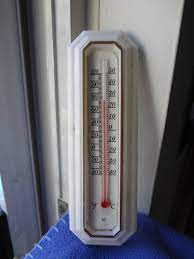Metabolism Boosting Tips For Losing Weight And Feeling Great
The Truth About Metabolism
Metabolism is Strongly Correlated with Body Composition
Your metabolism is related directly to the physiological composition of your body. Muscle has the natural ability to increase metabolism, and fat has the unfortunate ability to slow it down. Maintaining a proper and healthy balance of Muscle and Fat can positively impact your metabolism, generating more  energy and helping you stay healthier and more lively throughout the day.
energy and helping you stay healthier and more lively throughout the day.
The easiest way to determine your body composition is through a simple conversion known as the Body-Mass Index. Although not perfect, BMI will give you a roundabout estimate of your muscle-fat ratio, letting you know what your goals should be when exercising and dieting.
Proteins Are the Best Food to Enhance Metabolism
The foods that you eat influence your metabolism powerfully. The more complex the food that you eat, the more energy it takes for your body to turn it into a functional product. Proteins take the most energy for the body to break down, so they burn the most calories.
Simple sugars and carbohydrates take the least energy for the body to break down and have the most negligible influence on metabolism. The body has the ability to break down simple carbohydrates and convert them directly into fat.
Complex carbohydrates such as brown rice and whole grains take more energy to break down and are healthier for the body because they add fiber and other nutrients to the diet.
Women Have Slower Metabolism than Men
It may seem a bit unfair, but it is physiologically more difficult for women than men to burn fat. Women genetically store higher fat levels than their male counterparts because this helps with the nursing process and makes it easier for women to bear healthy children.
On the other hand, men have higher metabolisms, both because their bodies are less prone to deposit fat and because Testosterone flowing through their veins encourages the muscles to grow larger, further enhancing metabolism.
The good thing about this for women is that they are biologically designed to carry more body fat than men, which means that as long as they stay within a normal range for their sex, it's not harmful to women to have a slightly higher BMI than their male counterpart pound for pound.
What Exactly Is Metabolism?
Regarding diet, nutrition, and exercise, the word Metabolism usually refers to the rate at which your body burns fat and calories, but the full definition is broader. Metabolism refers to any activity that your body does that uses energy.
When you exercise, your body burns consumed and stored calories to fuel your physical activity. Any food that you eat will lead to an increase in  metabolism because your body is spending energy breaking the food down.
metabolism because your body is spending energy breaking the food down.
The problem with simple carbohydrates and empty calories are that your body expends significantly less energy breaking simple foods down than more complex foods, such as proteins and whole grains. This causes your body to store more calories than you actually need.
Metabolism can further be broken down into two forms of action: Anabolic Metabolism and Catabolic Metabolism. Anabolic Reactions in the body either store energy or use energy to build cells and other physiological structures. Catabolic reactions are any metabolic reactions that free up stored energy or break down cells or molecules.
What is a Metabolic Rate?
Metabolic Rate refers to the speed at which your body burns calories over time. When you hear the word Metabolism used in the context of exercise, nutrition, and diet, it is generally used as a shorthand for metabolic rate.
The most common scientific measure of Metabolic Rate is Basal Metabolic Rate. Resting Metabolic Rate is a shorthand method of approximating Basal Metabolic Rate using weight, height, sex, and age in a less restrictive setting.
Your Baseline Metabolic Rate gives you a general idea of how your body uses energy. The more muscle you have, the more calories your body will naturally burn, even in a sedentary environment. The more fat you have, the fewer calories your body will ambiently burn.
A Variety of Factors Influence Your Metabolism, Including Lifestyle, Age, and Genetics
Metabolism is impacted by a wide variety of different factors. Lifestyle is the aspect that you have the most control over as an individual. Lifestyle encompasses various components, including the foods you choose to eat and the level of physical activity you choose to engage in.
You don't have any control over age, but it is vital to recognize how age affects metabolism. Children and adolescents have an incredibly high metabolism because they directly use the energy and calories they take in to grow taller and more muscular.
Most people still have strong metabolisms during early adulthood, but metabolism naturally slows with age, making it harder to maintain a healthy weight.
Genetics is another factor that cannot be controlled by human beings. You got your parent's eyes and their height, and you also get their physiological  predisposition toward metabolism. Some people are just born to burn energy, and these people will find it easier to keep weight off than those that were born with a more modest metabolism.
predisposition toward metabolism. Some people are just born to burn energy, and these people will find it easier to keep weight off than those that were born with a more modest metabolism.
Metabolism is Controlled Primarily by the Thyroid Gland
The Thyroid Gland is a complex area of the brain responsible for controlling how your body absorbs and expends energy. Thyroid Hormones control how slowly or quickly your body burns calories.
It also makes executive decisions regarding what your body does with the nutrients you take. The Thyroid decides if you need to build protein for muscle or fat for energy storage. The Thyroid also decides whether you burn fat or muscle during exercise and how your body reacts to other hormonal influences.
Thyroid Dysfunctions are almost synonymous with Metabolic Disorders. Hypothyroidism is a condition in which the body does not produce enough Thyroid Hormones to allow the body to function appropriately. This negatively influences metabolism and can lead to extreme fatigue, reduced metabolism, and difficulty maintaining a healthy weight.
Hyperthyroidism is a condition in which the Thyroid Gland produces too many hormones, which speeds up metabolism, sometimes leading to rapid weight loss or a need to consume many calories to remain healthy.
Both Hypothyroidism and Hyperthyroidism can be treated with medications that influence the rate at which the Thyroid Gland operates. Hypothyroidism can be treated with Thyroid Hormone Replacement Therapy which replaces Thyroid Hormone, which is not being produced effectively by the brain, and Hyperthyroidism can be treated with medications that block Thyroid Hormone Receptors, limiting the influence of the excess hormone production.
Anaerobic Strength Training is a Fantastic Way to Encourage Faster Metabolism
Weight Lifting and Resistance Training are potent ways to help you lose weight and increase your Basal Metabolic Rate. Although there is no debate as to whether or not this is true, there is some debate regarding the mechanism by which these positive changes occur.
One school of thought suggests that reducing body fat and increasing muscle mass increases your metabolism at rest, allowing you to burn more calories even when you aren't engaged in physical activity.
However, this hypothesis has many detractors, including the American College of Sports Medicine. The ACSM suggests that the primary benefit of Strength Training for most people regarding Metabolism occurs during exercise and when the new muscle is developed.
Strength Training for most people regarding Metabolism occurs during exercise and when the new muscle is developed.
They admit that regular Strength Training does increase Resting Metabolism, but for most people, the Metabolic Benefits of Strength Training which occurs in the period during and immediately after physical activity, vastly outweigh the slight increase in Resting Metabolism.
As You Grow Older, Your Metabolic Rate Decreases
As we mentioned earlier, your Metabolism decreases as a factor of age. The rate at which this decline occurs differs from person to person, but all people will burn less energy as they grow older.
One reason for this is that the body becomes less effective at maintaining muscle mass over time. The influence of hormones like Testosterone and Human Growth Hormone starts to decline in the late twenties and early thirties, and the body's metabolic processes start to slow down. The average rate at which the individual's metabolism tends to slow down is around two percent every ten years.
In women, Menopause can also play a more immediate factor in metabolism. It is vitally important to engage in physical activity before, during, and after Menopause because studies have shown that women who do not exercise lose about ten percent of their metabolism, adjusted for age-related loss of muscle mass, than women that have not yet experienced Menopause.
Women that exercise regularly do not experience any additional decline beyond the guaranteed two percent per decade.
A Highly Restrictive Diet Hurts Metabolism
Many people believe that one of the easiest ways to lose weight is simply to cut calories. While it is true that responsibly cutting back on calories is a practical aspect of losing weight, cutting calories too much can actually harm your ability to lose weight.
If you cut your calories to less than 1,200 per day, your body will react to that as a sign of starvation and cut back metabolism significantly to help the body maintain its weight against that risk. The problem is that if you simply cut back to try to lose weight, you will get vastly limited results.
The best way to lose weight is to cut calories moderately and increase physical activity to enhance metabolism. Following this method, you ensure that your body increases its metabolic rate while reasonably decreasing calories, producing the most effective rate of healthy weight loss.
Experts also suggest spreading small, nutrient-dense, low-calorie meals across the day to enhance metabolism. Eating a snack or meal every two to three hours gives your body energy, and choosing foods smartly allows your digestive system to work hard to break down the nutrients contained within the complex foods you are eating.
Caffeine Increases Metabolism
Caffeine belongs to a class of chemical compounds known as stimulants. Caffeine has the ability to positively impact metabolic rate, and research has indicated that a single cup of coffee has the ability to increase metabolism by as much as four percent as it is metabolized by the body.
 Caffeine takes around twenty to thirty minutes to fully enter the bloodstream, and many people use it to amplify their physical activity. Caffeine can increase energy levels during exercise and help prevent fatigue. Caffeine can also help the body burn more calories and exercise harder.
Caffeine takes around twenty to thirty minutes to fully enter the bloodstream, and many people use it to amplify their physical activity. Caffeine can increase energy levels during exercise and help prevent fatigue. Caffeine can also help the body burn more calories and exercise harder.
It's essential to consume caffeine in suitable sources, however. Black coffee contains few calories, but you are being counterproductive if you are drinking peppermint mochas to increase your metabolism.
Of course, too much caffeine can be bad for you, and the body slowly develops a tolerance to caffeine over time. Some experts suggest that the best way to use caffeine to enhance weight loss is to use it for such purposes only for short periods. For example, drink coffee before exercising for two weeks, then stop for two weeks.
Eating Spicy Foods Can Boost Your Metabolism
Spicy foods contain a potent chemical known as capsaicin. Capsaicin makes spicy foods feel hot no matter what temperature they are. They accomplish this by stimulating heat receptors in the mouth and other body parts, giving a stronger burning sensation dependent upon the concentration measured in Scoville Units.
Like caffeine, capsaicin can also be used to enhance metabolism. Capsaicin is also a very calorie-effective means to accomplish this because most hot sauces contain very few calories. Simply using a few dashes of hot sauce on your breakfast, lunch, or dinner can give you a quick and easy metabolic boost.
If you want to boost your metabolism before a workout, take a tablespoon equivalent of green chile pepper or red pepper. This has been shown to provide you with a temporary increase in metabolism, which can be as high as 23 percent.
You can also benefit from red pepper capsules if you don't want to deal with the taste. Taking a capsule before every meal has been shown to provide an average metabolic increase of ten to sixteen percent over the course of a two-day period.
Be Extremely Careful When Considering Weight Loss Supplements
Weight loss pills and supplements may sound like a miracle in a bottle, but most of them also come with a significant risk of side effects. Never use a dietary supplement without consulting your doctor because your physician will be able to give you a responsible and professional opinion regarding their use.
For example, Ephedra used to be a widely-used energy and weight loss supplement but was made illegal in 2004 after it was found that Ephedra could be dangerous to take for many people.
Ephedra has the ability to both increase heart rate and blood pressure, which does increase metabolism, but these two factors are also associated with many dangerous health conditions such as heart attack, stroke, and anxiety attacks.
We also suggest extreme caution when utilizing amino acid supplements because the human body can only process a specific concentration of amino acids and other peptide fragments before the liver starts to suffer and become overloaded as a direct result. Try to get your amino acids from the foods you eat, not supplements that flood your body.
Climate Has a Direct Impact on Your Metabolism
The human body is a machine that is designed to function at a particular level of body heat. Our bodies work hard to keep our internal temperature between 96 and 98 degrees, and the harder that is to attain, the more energy will be expended to restore the optimal temperature.
The chemical reactions in our body depend upon a specific range of temperatures, and the body will start to fail if it becomes too hot or too cold.
 Room temperature is the ideal environment for our bodies. The ambient heat generated by the body is enough to sustain an average temperature. The more it deviates from that temperature, the more calories the body will burn. Studies suggest that people living in hot climates have Basal Metabolic Rates between five and twenty percent more significant than those living in cool climates.
Room temperature is the ideal environment for our bodies. The ambient heat generated by the body is enough to sustain an average temperature. The more it deviates from that temperature, the more calories the body will burn. Studies suggest that people living in hot climates have Basal Metabolic Rates between five and twenty percent more significant than those living in cool climates.
Remember that your body doesn't care what the temperature is outside if you are inside. A helpful tip to increase your metabolism is to keep your home a little cooler or warmer than room temperature, depending on the season. The increase in metabolism may only be slight, but every little bit counts when you are trying to sustain a healthy weight.
Your Body Burns More Calories Simply Sustaining Itself Than Working Out
The human body burns a lot of calories, just keeping you alive. On average, seventy percent of the calories you burn during the day would have been burned, whether running at the gym or sitting around watching television.
This doesn't mean that you should forgo exercise or anything; it just gives you an idea of the amount of work it takes for your body to keep you happy and healthy. Around thirty percent of the calories, you burn during the day directly result from the activities you pursue throughout the day.
People that are sedentary always burn fewer calories than people who are active.
Sedentary people only burn around twenty-five percent of their calories through physical exertion, whereas physically active people burn around-thirty five percent of their calories through exercise and activity.
- Xylitol is a Natural, Plant-Sourced and Low-Calorie Sweetener [Last Updated On: January 8th, 2025] [Originally Added On: January 12th, 2021]
- The Secret Behind Keeping the Weight Off for Good -- No More Losing and Gaining Cycles! [Last Updated On: January 17th, 2025] [Originally Added On: January 13th, 2021]
- The Cognitive Benefits of Starting a CoQ10 (Coenzyme Q10) Supplement Regimen [Last Updated On: January 12th, 2025] [Originally Added On: January 14th, 2021]
- It's Time to Understand Why Vitamin C is Critical for Our Health and Longevity! [Last Updated On: January 10th, 2025] [Originally Added On: January 15th, 2021]
- Snoring is the Most Common Early Symptom of Sleep Apnea -- Do You Suffer From It? [Last Updated On: January 11th, 2025] [Originally Added On: January 16th, 2021]
- Vitamin-d Longevity Vitamin [Last Updated On: January 2nd, 2025] [Originally Added On: January 17th, 2021]
- Twenty Simple Weight Loss Tips That Can Change Your Life [Last Updated On: January 1st, 2025] [Originally Added On: January 18th, 2021]
- Twelve Ways To Control Cravings [Last Updated On: February 22nd, 2025] [Originally Added On: January 19th, 2021]
- The Truth About The Zone Diet [Last Updated On: January 1st, 2025] [Originally Added On: January 20th, 2021]
- The Truth About The Schwarzbein Principle [Last Updated On: December 31st, 2024] [Originally Added On: January 21st, 2021]
- The Truth About The Realage Diet [Last Updated On: December 31st, 2024] [Originally Added On: January 22nd, 2021]
- The Truth About The Origin Diet [Last Updated On: December 30th, 2024] [Originally Added On: January 23rd, 2021]
- The Truth About The Eat Right, Live Longer Diet -- Nourishing Food Equals Increased Longevity [Last Updated On: January 31st, 2025] [Originally Added On: January 24th, 2021]
- The Essential Roles Magnesium Plays For Our Energy Levels, Skin Youthfulness and Mental Health [Last Updated On: January 4th, 2025] [Originally Added On: January 25th, 2021]
- The Real Skinny On Vitamin B12. What It Can And Cannot Do For You [Last Updated On: March 23rd, 2025] [Originally Added On: January 26th, 2021]
- The Importance And Purpose Of Stress [Last Updated On: February 18th, 2025] [Originally Added On: January 27th, 2021]
- The Ideal Balanced Diet The Reality Of Healthy Eating [Last Updated On: December 30th, 2024] [Originally Added On: January 28th, 2021]
- The Effects Of Cortisol On The Body [Last Updated On: July 28th, 2024] [Originally Added On: January 29th, 2021]
- Sixteen Common Foods That Increase The Cancer Risk [Last Updated On: December 29th, 2024] [Originally Added On: January 30th, 2021]
- Should You Consider Intermittent Fasting? [Last Updated On: November 24th, 2024] [Originally Added On: January 31st, 2021]
- Can Caloric Restriction Help You Lose Weight And Live Longer? [Last Updated On: November 24th, 2024] [Originally Added On: February 1st, 2021]
- How Does Poor Sleep Rob Vitality And Health? [Last Updated On: November 24th, 2024] [Originally Added On: February 2nd, 2021]
- Nine More Natural Ways To Relieve Anxiety [Last Updated On: November 24th, 2024] [Originally Added On: February 3rd, 2021]
- Juicing Pros And Cons [Last Updated On: March 22nd, 2025] [Originally Added On: February 5th, 2021]
- Insomnia Guide [Last Updated On: November 21st, 2024] [Originally Added On: February 6th, 2021]
- How To Lose Weight With Human Growth Hormone [Last Updated On: November 20th, 2024] [Originally Added On: February 7th, 2021]
- How Safe Is Monosodium Glutamate AKA Msg? [Last Updated On: November 23rd, 2024] [Originally Added On: February 8th, 2021]
- How Is Sleep Apnea Diagnosed And Treated [Last Updated On: November 18th, 2024] [Originally Added On: February 9th, 2021]
- Hidden Sources Of Sugar In Common Foods [Last Updated On: November 17th, 2024] [Originally Added On: February 10th, 2021]
- How Would You Like to Potentially Add 14 Healthy and Youthful Years to Your Life Span? [Last Updated On: November 19th, 2024] [Originally Added On: February 11th, 2021]
- Four Reasons Why Healthy Sleep Encourages Weight Loss [Last Updated On: November 16th, 2024] [Originally Added On: February 12th, 2021]
- Omega-3 Fatty Acid Facts And How They Relate To Hormone Replacement Therapy [Last Updated On: July 25th, 2024] [Originally Added On: February 14th, 2021]
- Drink Right To Live Well [Last Updated On: November 15th, 2024] [Originally Added On: February 15th, 2021]
- Consumers Of Processed Meat Put Themselves At Risk [Last Updated On: November 14th, 2024] [Originally Added On: February 16th, 2021]
- Comparing The Same Mass Of Muscle And Fat [Last Updated On: February 19th, 2025] [Originally Added On: February 17th, 2021]
- Watermelon Health Food? The Benefits Of L-citrulline And Watermelon [Last Updated On: November 13th, 2024] [Originally Added On: February 18th, 2021]
- Alcohol Appears To Impact Sperm Quality [Last Updated On: November 12th, 2024] [Originally Added On: February 19th, 2021]
- The Benefits of Selenium - Should You Take a Selenium Supplement? [Last Updated On: February 9th, 2025] [Originally Added On: April 8th, 2021]
- Selenium and its Impact on Your Health and Hormones [Last Updated On: March 3rd, 2025] [Originally Added On: April 8th, 2021]
- Scientifically Proven Benefits Of Turmeric The Indian Spice [Last Updated On: March 18th, 2025] [Originally Added On: April 27th, 2021]
- Natural Remedies for Heartburn or Acid Reflux [Last Updated On: February 18th, 2025] [Originally Added On: May 22nd, 2021]
- What the Heck Is a Raisin, Anyway and Why Would I Want to Eat One? [Last Updated On: August 18th, 2024] [Originally Added On: June 10th, 2021]
- Fat-Focused Diet May Help Boost Testosterone [Last Updated On: February 17th, 2025] [Originally Added On: June 10th, 2021]
- Chia Seeds: More Than Just a Fad [Last Updated On: July 12th, 2024] [Originally Added On: June 24th, 2021]
- Intermittent Fasting Boosts Growth Hormone, and Improves Cognitive Health [Last Updated On: March 4th, 2025] [Originally Added On: May 2nd, 2022]
- Growth Hormone, Nutrition, and Diet Affect Longevity [Last Updated On: February 14th, 2025] [Originally Added On: May 6th, 2022]
- How Your Health is Affected by Brown and White Fat [Last Updated On: February 14th, 2025] [Originally Added On: May 17th, 2022]
- Tesamorelin Boosts HGH Levels and Burns Belly Fat [Last Updated On: February 14th, 2025] [Originally Added On: May 21st, 2022]
- Build Muscle With Tofu - Don't Fear Soy [Last Updated On: December 29th, 2024] [Originally Added On: July 12th, 2022]
- Balancing HGH Levels with Weekly Sogroya [Last Updated On: December 28th, 2024] [Originally Added On: September 1st, 2022]
- Pecans Are Amazing [Last Updated On: February 19th, 2025] [Originally Added On: November 22nd, 2022]
- The Benefits of Fenugreek [Last Updated On: October 14th, 2024] [Originally Added On: November 24th, 2022]
- The Foods To Eat To Increase Stem Cells [Last Updated On: March 6th, 2025] [Originally Added On: December 7th, 2022]
- The Versatility of Pecans [Last Updated On: February 19th, 2025] [Originally Added On: February 9th, 2025]
- Understanding The Concept: A Pound Of Muscle Vs. A Pound Of Fat [Last Updated On: February 19th, 2025] [Originally Added On: February 11th, 2025]
- The Aging Enigma: Unravelling the Web of Human Growth Hormone Decline [Last Updated On: February 17th, 2025] [Originally Added On: February 12th, 2025]
- Rekindling the Flame: How a Fat-Friendly Diet Can Ignite Testosterone Levels [Last Updated On: February 14th, 2025] [Originally Added On: February 13th, 2025]
- Unlocking Your Inner Fountain of Youth: The Magic Elixir of HGH Injections for Women [Last Updated On: February 17th, 2025] [Originally Added On: February 14th, 2025]
- Effective Strategies for Controlling Cravings [Last Updated On: February 17th, 2025] [Originally Added On: February 17th, 2025]
- Overview of Hormone Replacement Therapy and the Role of Intermittent Fasting [Last Updated On: February 22nd, 2025] [Originally Added On: February 22nd, 2025]
- Understanding the Power of Stem Cells [Last Updated On: February 24th, 2025] [Originally Added On: February 24th, 2025]
- The Role of Selenium in Health and Hormones [Last Updated On: February 26th, 2025] [Originally Added On: February 26th, 2025]
Word Count: 2558







